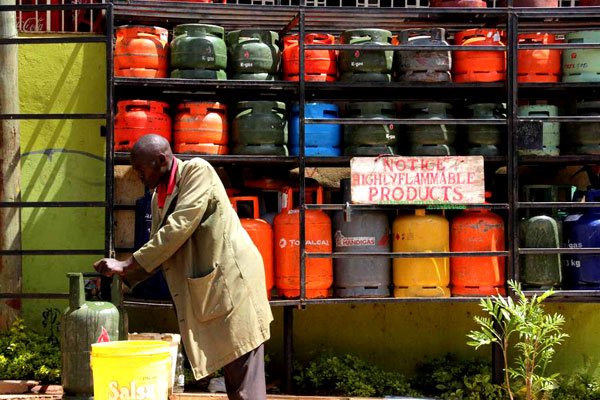Business
Liquefied Petroleum Gas Consumption Drops 35pc On High Prices

Consumption of Liquefied Petroleum Gas (LPG) dropped by 35 percent in the first half of the year, as the impact of the high prices driven by taxes and the Russia-Ukraine conflict forced Kenyans back to dirty fuels.
Data from the Kenya National Bureau of Statistics (KNBD) shows that Kenyans bought 123,150 tonnes of cooking gas in the six months to June this year, down from the 188,850 tonnes purchased in a similar period last year.
This comes even as oil marketers continued to deny Kenyans lower prices after Parliament halved taxes in July.
The rise in gas prices has pushed more Kenyans to use dirty fuels such as charcoal and firewood as they struggle with the soaring cost of living that has seen inflation rise to 8.5 percent, the highest since July 2017.
According to the 2019 population census, nearly a quarter, 24 percent of Kenyan households primarily depend on cooking gas as their main source of cooking fuel.
KNBS data says the usage of cooking gas is highest in urban areas at 52 percent while only five percent of rural households use LPG.
There has been increased lobbying for the use of cleaner and more efficient energy to reduce respiratory tract infections, heart diseases, stroke, and cancers, among others.
“Unfortunately, millions of people continue to die prematurely every year from household air pollution produced by cooking with inefficient stoves and devices paired with wood, coal, charcoal, dung crop waste and kerosene,” said WHO in a statement.
Firewood is the most popular cooking fuel in the country with a usage of 55 percent nationally and 84 percent in the rural set-up.
Firewood usage is primarily driven by ease in accessibility as most rural households struggle with poverty and can’t afford cooking gas or electricity.
Kenya introduced a value added tax (VAT) of 16 percent on LPG in July last year, causing a further rise in prices but was later halved to 8.0 this year, after public uproar. However, more than one month later, some marketers are yet to pass on the tax reduction to consumers.
Total Energies Marketing Kenya, for example, is still selling the 13-kilogramme gas at Ksh3,330, which is about Ksh500 higher, denying consumers the lower taxes.







